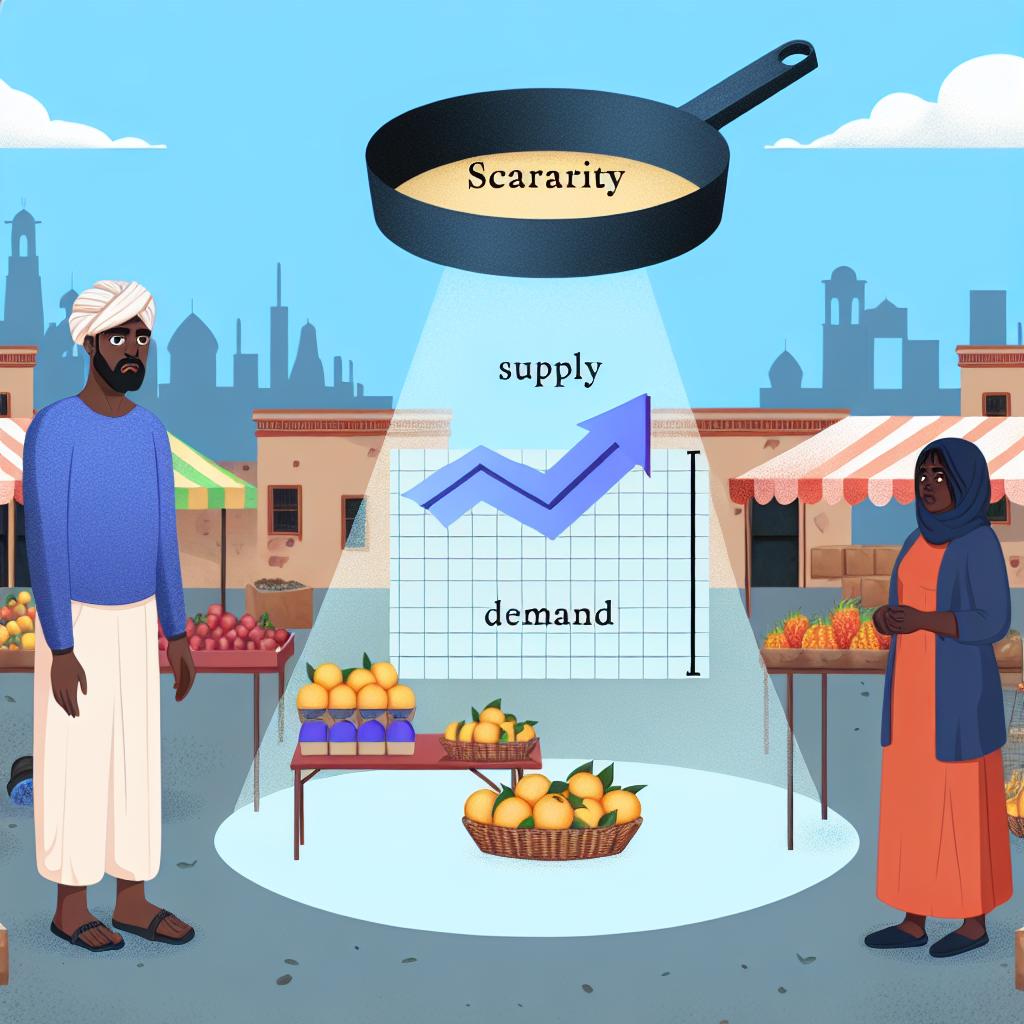The Concept of Scarcity in Economics
- Written by: admin
- Category: Uncategorized
- Published: August 3, 2025

Understanding the Concept of Scarcity in Economics
In economics, the concept of scarcity is a principle of paramount importance. This principle is rooted in the very fabric of economic study and discourse, accentuating the inherent limitations present when it comes to fulfilling human needs and wants. At the very core of economic theory is this basic economic problem, which arises due to the stark reality that while resources are finite, human desires for goods and services are boundless and constantly evolving. Such a state of affairs demands that choices and trade-offs become essential in the quest to allocate resources most effectively.
Defining Scarcity
The notion of scarcity, when viewed through an economic lens, refers to the limited nature of resources in comparison to the seemingly unlimited wants of individuals and societies. Resources that hold economic value—land, labor, capital, and entrepreneurship—come with a finite supply. These resources lack the capacity to meet all the desires and needs of a growing population. Consequently, economic agents—whether they are individuals, corporations, or governmental bodies—find themselves in the pivotal position of needing to make crucial decisions about how best to utilize these constrained resources.
The Implications of Scarcity
The far-reaching implications of scarcity permeate multiple facets of economic activity in profound ways:
Choice and Opportunity Cost: The scarcity of resources necessitates that individuals and organizations embark upon decision-making processes to ensure the efficient allocation of resources. This dynamic brings forth the concept of opportunity cost, which denotes the value of the second-best alternative that is foregone when a particular choice is made. To elucidate, consider a scenario where a decision is made to produce an increased quantity of consumer goods; this decision might result in fewer resources being directed towards the production of capital goods, highlighting the trade-offs inherent in economic decision-making.
Resource Allocation: The reality of scarcity gives rise to the need for a mechanism capable of allocating resources in a manner that optimizes both output and efficiency. Within the framework of a market economy, prices frequently assume this critical role, serving as indicators to highlight where resources are most valued and needed.
Economic Systems and Scarcity: Different economic systems—each embodying unique philosophies and approaches—tackle the issue of scarcity through diverse means. The varying degrees to which market forces and governmental intervention are utilized within capitalism, socialism, or mixed economies elucidate the distinct methods for coping with resource allocation.
The Role of Supply and Demand
Supply and demand forces are integral components in the conversation surrounding scarcity. In market dynamics, these forces actively respond to scarce resources through the mechanism of price adjustments. For instance, the price of a particular good or service may increase if it experiences a heightened level of scarcity. This price increase acts as a signal to both consumers and producers, aligning demand with the limited supply available. It is this self-regulating mechanism that directs resources toward their most valued and essential uses within a market economy.
Addressing Scarcity
Efforts to address and effectively manage the challenges posed by scarcity require innovative strategies geared towards increased efficiency and resource exploration. Technology, with its ever-advancing front, provides numerous pathways to enhance production methods and create new alternatives. Scientific innovation often leads to the discovery of alternative resources, thus broadening the range of available options. Moreover, education that emphasizes resource management plays a pivotal role in enabling societies to make informed and prudent decisions. One of the primary goals is to strive toward sustainable development, ensuring that resources are utilized in a manner that benefits both present and future generations.
Conclusion
The concept of scarcity resides at the core of economic thought, serving as the motivational force behind a multitude of economic theories and practices. A firm grasp of scarcity aids in understanding the motives and rationale behind specific economic activities, and it assists in formulating strategies focused on more efficient resource utilization. Both individuals and societies are tasked with navigating the intrinsic limitations posed by scarcity by making informed, strategic decisions. This imperative often necessitates further exploration beyond surface-level understanding. To fully appreciate the complexities of scarcity and its multifaceted impact on economics, readers are encouraged to delve deeper into additional resources or to explore dedicated economic education websites.
This article was last updated on: August 3, 2025

